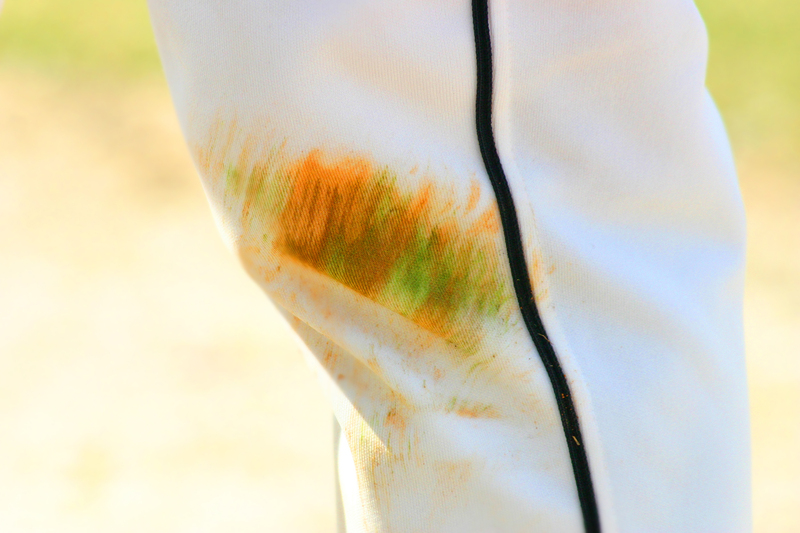Conquer Pet Odors for a Breath of Fresh Air
Posted on 25/08/2025
Conquer Pet Odors for a Breath of Fresh Air: Your Ultimate Guide
Pets bring unconditional love and joy into our lives, but they also sometimes leave behind less-than-pleasant aromas. While sharing your home with furry friends is rewarding, pet owners often face the ongoing battle of eliminating pet odors to achieve a fresh home environment. Thankfully, the challenge of conquering pet odors is not insurmountable. This guide explores practical tips, effective solutions, and insightful strategies to help you keep your home smelling fresh and clean--no matter how many paws, claws, or wagging tails you have under your roof!

Understanding Pet Odor: Why is it So Persistent?
Before you can effectively eliminate pet odors, it's important to understand where they come from and why they linger. Pet odors are typically caused by:
- Pet Dander: This is the microscopic skin flakes shed by animals, often carrying proteins that contribute to allergens and unpleasant smells.
- Saliva and Body Oils: Natural oils from your pet's skin and saliva can transfer to furniture, carpets, and fabrics, creating persistent scents.
- Urine and Feces: Accidents happen, especially with young or senior pets. Urine, in particular, contains ammonia and bacteria that produce strong odors.
- Pet Bedding and Accessories: Toys, beds, blankets, and crates absorb body odors over time if not regularly cleaned.
Pet odors are stubborn because they often seep into porous surfaces and fabrics, making it difficult to fully eradicate the source without a targeted approach.
Health Implications of Lingering Pet Odors
Besides being unpleasant, unresolved pet odors may have impacts on air quality and health. Accumulated dander and ammonia from pet urine can trigger allergies, asthma, and respiratory issues in sensitive individuals. Ensuring your home is free of lingering smells is essential for both comfort and well-being.
The Psychology Behind Fresh-Smelling Spaces
A clean-smelling home doesn't just impress guests; it also profoundly influences your mood, productivity, and sense of relaxation. Studies show that fresh air contributes to reduced stress and increased happiness. Keeping pet odors under control allows you--and your pets--to thrive in harmony.
Strategies and Solutions to Eliminate Pet Odors
1. Prioritize Cleanliness: Regular Cleaning Routines
- Vacuum Frequently: Invest in a vacuum with a HEPA filter and use it on all carpets, rugs, and upholstery at least twice a week. This removes dander, pet hair, and debris.
- Wash Pet Bedding: Wash all pet beds, blankets, and soft toys in hot water weekly. Use a pet-safe detergent and consider adding a cup of vinegar during the rinse cycle for deodorizing power.
- Launder Human Bedding and Throws: If your pet shares your bed or snuggles on the couch, launder your own linens frequently to prevent buildup of odors.
2. Attack Odors at the Source
- Immediate Clean-Up: Promptly clean urine or feces accidents to prevent permanent set-in smells. Blot (don't rub) excess liquid and use an enzyme-based cleaner to break down odor-causing compounds.
- Deal with Hair and Dander: Brush your pets regularly to minimize shedding and dander spread throughout your home.
3. Harness the Power of Enzyme Cleaners
Enzyme cleaners are a secret weapon for conquering persistent pet odors. They work by breaking down organic material such as urine and feces at a molecular level, eliminating rather than masking the smells. Use enzyme cleaners on:
- Carpet stains
- Furniture fabrics
- Pet beds and crates
- Tile, hardwood, or vinyl flooring (always check compatibility)
4. Control Odors with Air Purifiers and Deodorizers
For a true breath of fresh air, use an air purifier with a HEPA filter and activated carbon. These units not only trap pet dander but also filter out volatile organic compounds (VOCs) responsible for bad smells.
Consider also:
- Baking Soda: Sprinkle on carpets and let sit before vacuuming to absorb odors.
- Natural Air Fresheners: Simmer citrus peels, use essential oils such as lavender or eucalyptus (pet-safe only!), or try activated charcoal bags for continuous freshness.
5. Invest in Odor-Resistant Materials
Choose easy-to-clean beds, slipcovers, and mats made from odor-resistant and water-repellent materials to help in keeping pet odors at bay. For floors, tile or sealed hardwood are better options than wall-to-wall carpet when possible.
6. Maintain Clean Pet Habits
- Bathing and Grooming: Bathe your pets as recommended by your veterinarian (typically every 4-8 weeks for dogs), and routinely groom cats and dogs to remove excess hair and dander.
- Litter Box Maintenance: Scoop solid waste daily, change litter frequently, and wash litter boxes weekly. Use unscented, absorbent litters to minimize smells.
- Dental Hygiene: Bad breath can contribute to overall pet odor. Brush your pet's teeth regularly and provide dental chews.
7. Professional Solutions and Advanced Tips
- Steam Cleaning: Periodically steam clean carpets and upholstery to deeply sanitize and deodorize fibers.
- HVAC System Maintenance: Replace air filters regularly and have your air ducts cleaned to prevent pet hair and odors from circulating through your HVAC system.
- Professional Cleaning Services: For truly stubborn smells, consider calling in pet odor remediation experts who use industrial-grade equipment and eco-friendly solutions.
DIY Pet Odor Remedies: Natural and Safe Options
Baking Soda and Vinegar Magic
One of the most trusted household remedies for pet odors is a combination of baking soda and white vinegar. Sprinkle baking soda over affected carpets or fabrics, let it sit overnight, and vacuum thoroughly. For tougher stains, spray a 50/50 mix of vinegar and water, let it fizz, then blot dry.
Activated Charcoal for Air Purification
Activated charcoal is a powerful natural air purifier. Place charcoal bags in rooms, closets, or even inside pet areas to absorb odors and moisture for up to three months at a time.
Lemon Freshness
A simple bowl of lemon slices left on the counter can help neutralize pet odors while adding a citrusy, refreshing aroma to your home.
Myths and Mistakes to Avoid When Tackling Pet Odors
Many pet owners inadvertently make the battle against odors harder by:
- Masking Instead of Removing: Air fresheners and scented sprays may help temporarily, but they do not eliminate the source of odors. Always treat the source.
- Using Harsh Chemicals: Bleach, ammonia, or strong perfumed cleaners may not only be ineffective on pet smells but can also be harmful to pets' health.
- Ignoring Pet Accessories: Regularly clean food bowls, collars, and leashes, which can harbor odors over time.
- Forgetting the Car: If your pet rides in the car, treat upholstery and mats with the same care as your home.
Specialized Tips for Different Types of Pets
Dogs
- Double down on grooming: Dogs that spend time outdoors tend to pick up earthy or wet dog smells. Brushing and regular baths are vital.
- Paw wipes: Clean off muddy, salty, or soiled paws before your dog re-enters the house.
Cats
- Litter quality: Choose unscented, clumping litter for optimal odor control.
- Hidden accidents: If your cat is urinating outside the box, rule out medical issues and clean areas thoroughly with enzymes.
Small Mammals (Rabbits, Guinea Pigs, Hamsters, etc.)
- Cage cleaning: Change bedding frequently--daily or every other day for odor-prone species.
- Ventilation: Keep cages in well-ventilated areas to prevent ammonia buildup.
Birds and Reptiles
- Spot clean daily: Remove droppings, uneaten food, and soiled substrate often.
- Cage wipes: Use unscented, pet-safe cleaning wipes to clean perches and glass.
When to Seek Professional Help
If you've tried all at-home remedies and cleaning routines and the odor persists, it may indicate a deeper issue such as mold growth, subfloor contamination, or even medical conditions in your pet such as urinary tract infections. In such cases, don't hesitate to contact:
- Pet Odor Removal Experts
- Veterinarians if you suspect changes in your pet's elimination habits
- Home Inspectors for structural or mold-related concerns

Prevent Pet Odors Before They Start
Consistent prevention is always more effective than repeated elimination. Here are proactive measures every pet owner should adopt:
- Designate pet zones: Create pleasant, easy-to-clean spaces in your home where your pets spend most of their time.
- Set cleaning reminders: Use phone alerts or calendar notes for regular grooming and cleaning sessions.
- Purchase quality odor-resistant products: Invest in beds, mats, and fabrics designed to discourage odor absorption.
- Routine vet checkups: Healthy pets are less likely to have odor-causing medical issues or elimination problems.
Fresh Air, Happy Home: Relish Life with Pets--Odor-Free!
With the right combination of diligent cleaning, smart product choices, and a healthy pet care routine, you can absolutely conquer pet odors for a breath of fresh air in your home. Turn the challenge of pet smells into an opportunity to elevate your living space, making it safe, comfortable, and welcoming for both you and your furry companions.
Remember: Address odors promptly, prioritize cleanliness, use safe and effective cleaning products, and embrace preventative care to ensure your home smells as wonderful as the joy your pets bring.
Ready to discover a pet odor-free lifestyle? Start applying these strategies today--and enjoy a truly fresh and invigorating living environment all year round!





